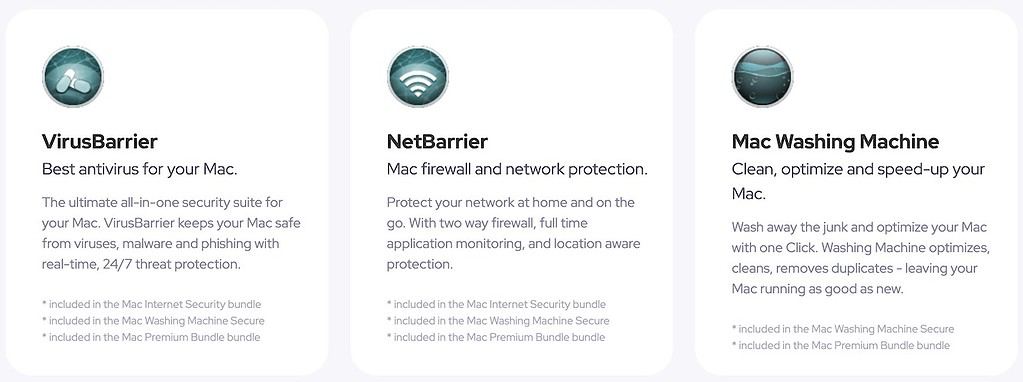Need to know if old Macs still get security updates? As someone who still sports a 2013 MacBook Pro, I know security is often on my mind. Over time, however, I’ve learned some critical insights concerning old Mac security.
While vintage Mac usage may prevent you from seeing Apple security updates on macOS, there’s potentially still a lot of life left in your machine if you play it smart. Keep reading to find out how to take care of your old Mac.
Do Old Macs Get Security Updates?
Yes, old versions of macOS get critical security updates. However, Apple normally doesn’t disclose when a device no longer receives them. Typically, when a device no longer receives software updates to the device’s operating system, it can still receive security updates for a number of years after that, but there’s no guarantee how long you will receive these operating system updates. For example, the 2012 Mac mini received security updates in 2022, despite the system ending with macOS Catalina.
As of 2023, the consensus is that Apple typically supports its current operating system, and then the two previous versions that came before it. For example, were the current operating system macOS Ventura, then Apple would still support macOS Monterey and macOS Big Sur. This is likely to be the case after every major release. However, if there is a major security risk across devices, Apple will release a security patch for those devices.
How Long Do Macs Get Security Updates For?
You can expect a Mac to get security updates for around three years after the release date of that version of macOS. However, you may still receive periodic updates for your operating system if there is a major security breach within the system. Apple does its best to announce when it needs to release such security fixes.

Essentially, if there’s something critically wrong with macOS, Apple is likely to fix it. However, outdated versions of macOS are likely to remain without updates until you are able to get to the current version of macOS. If you’re looking for the ultimate sense of security, it may be time to consider making the major update to a new device or continue reading for other options.
Why Using an Old Mac Might Be Risky
While it’s not necessarily a bad thing that your Mac is older, know that there are some risks involved with running an older machine. Running an unsupported version of macOS does open the doors to security issues, including security threats and potential compatibility issues with apps.
While Macs are known for common security, using an outdated version of any hardware or software is capable of causing security issues. Whether you’re an average user or an advanced user, an ancient machine is likely not to have amazing performance. You may also need to concern yourself with a compatibility checker for newer apps.
Making the Most of an Old Mac
Just because your Mac is old doesn’t mean that it’s useless. While Apple doesn’t officially support older machines receiving new macOS updates, there are still ways to upgrade to a major version of macOS. For example, there is a way to get macOS Ventura on certain older Macs if you’re tech-savvy.
However, you may want to worry about the security of your Mac. Certain measures can help protect you. Following good common sense and keeping your essential apps, such as your web browser, up to date will likely keep you protected. However, these measures will not keep you 100 percent secure.

It could be a good idea to get yourself a third-party antivirus software. If you are no longer receiving updates for major versions of macOS, having a proper antivirus can help keep your Mac secure. I would recommend Intego Internet Security X9, as Intego has a fantastic track record and its antivirus offers seamless integration. In addition to antivirus software, Intego also comes with firewall protection and is able to support machines going all the way back to macOS 10.12.
➡️ Get Intego Internet Security
Which macOS is No Longer Supported
At the time of this writing, macOS Ventura, macOS Monterey and macOS Big Sur are still receiving support. Support for macOS Catalina and older came to an end in September 2022. Remember that when it comes to security updates, older versions may receive occasional software updates if they are critical.
Fortunately, there are websites available that can let you know which versions of macOS are still receiving support. It can be a good idea to know what’s going on with the current release of macOS, even if you are using an older, stable release. You can also check Apple’s support page to learn about operating system upgrades and security vulnerabilities.
Conclusion
As an Apple user, you should always do your best to keep your system and its applications up to date. Keeping comprehensive updates is the best way to protect yourself against cybercriminals. You may also want to consider making the upgrade to a newer system if you find that your Mac is getting too old.
It’s important to know how to care of your old Mac. Just because Apple stopped supporting your device doesn’t necessarily mean that it’s time to throw it in the trash. However, you should still do your best to ensure that you are receiving security updates whenever possible. Of course, feel free to let us know about your experience with keeping old Macs fresh in the comments below.
